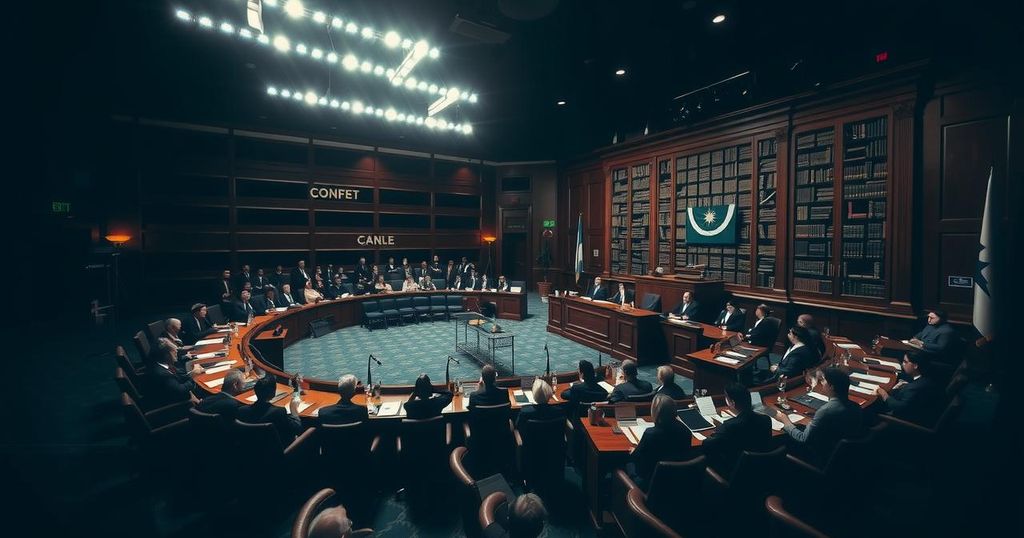The International Court of Justice commenced unprecedented hearings focused on establishing legal obligations for countries concerning climate change. With representation from over 100 nations, the proceedings aim to clarify the international legal responsibilities regarding climate protection, especially for vulnerable populations. Activists foresee significant impacts on climate litigation and legislation, despite concerns about the advisory’s limited binding power and potential delays in the court’s decision-making process.
On December 2, 2024, the International Court of Justice (ICJ) commenced historic hearings focused on establishing legal protocols for international climate protection efforts. Judge Nawaf Salam presided over the proceedings, which included representation from over 100 countries and organizations, marking unprecedented participation in the court’s history. The hearings addressed requests for a non-binding advisory opinion, particularly from representatives of vulnerable nations such as Vanuatu, who highlighted the urgent need for clearer obligations on climate action under international law. Activists expressed optimism that the court’s opinion could profoundly influence global climate legislation and ongoing litigations, despite concerns over the advisory’s potential limitations and the lengthy deliberation process ahead.
The hearings occurred shortly after the COP29 climate summit, where wealthier nations promised to provide $300 billion annually to assist poorer countries in transitioning to cleaner energy by 2035. However, many developing countries criticized this commitment as insufficient and lamented the lack of a global agreement to phase out fossil fuels. Various participants in the peaceful protests outside the venue articulated their hopes for the ICJ to provide pivotal legal frameworks to address ongoing climate crises, which many believe are exacerbated by inaction from major carbon emitters, including China, the United States, and India. The ICJ’s forthcoming opinion, anticipated by some in the coming year, is expected to offer a foundational legal structure out of which more specific climate-related queries may emerge.
The significance of the ICJ’s hearings lies in their potential to clarify the legal responsibilities nations hold regarding climate change. This marks a turning point in international legal frameworks aimed at combating climate impacts, especially for vulnerable nations that face existential threats due to rising sea levels and extreme weather events. The hearings, prompted by a UN General Assembly resolution, focus on the obligations of states to mitigate their greenhouse gas emissions and the legal repercussions of failing to do so. As global emissions reach record highs, the outcome of these hearings could reshape future climate litigation and climate policy amid pressing environmental challenges.
The ICJ hearings represent a landmark opportunity to define international legal standards concerning climate protection and accountability. By gathering diverse international perspectives and localized insights from at-risk nations, the court aims to foster greater global cooperation in addressing the climate crisis. As participants await the court’s advisory opinion, their hopes remain vested in its capacity to influence broader legislative advancements and alleviate the escalating challenges posed by climate change, particularly for the most affected regions of the world.
Original Source: www.bssnews.net






